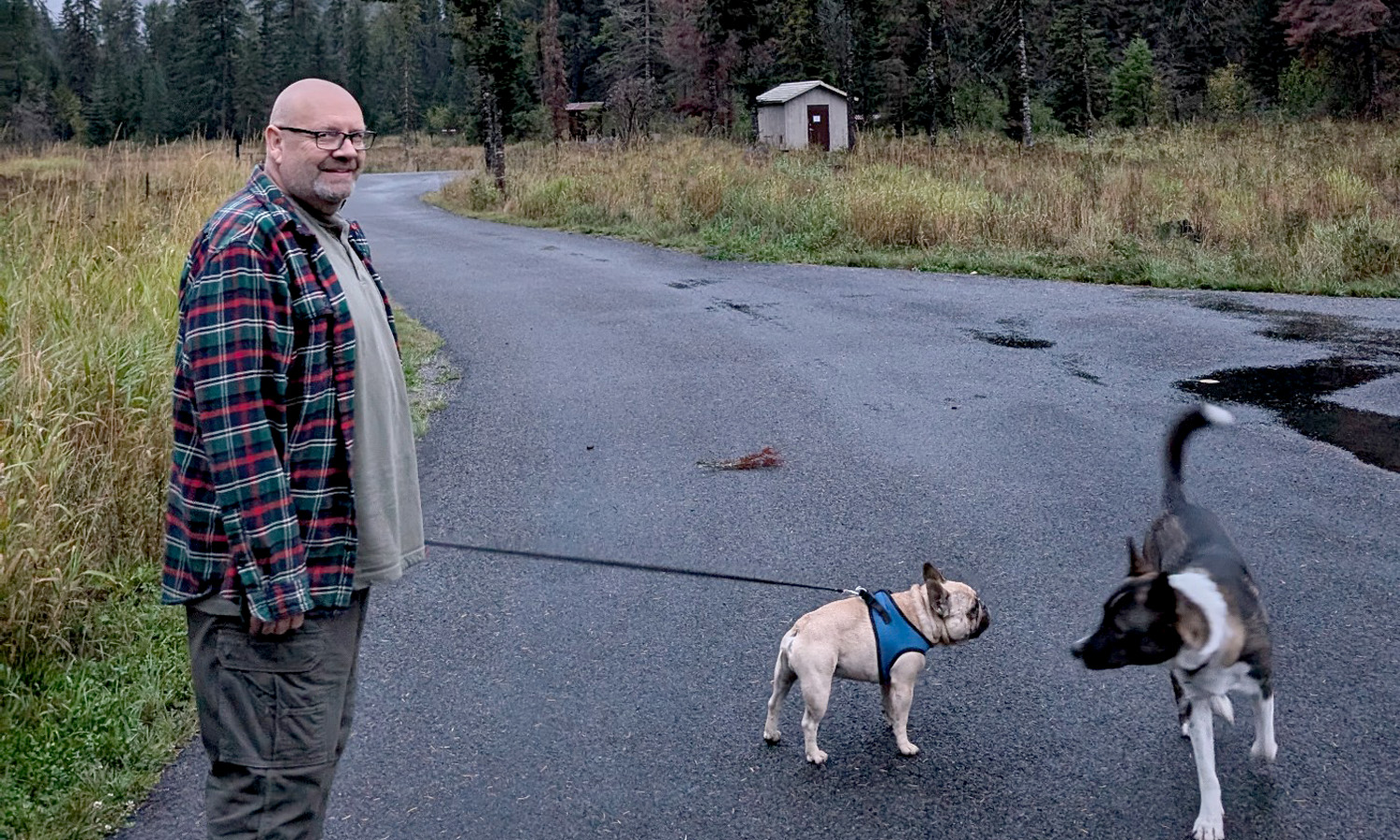
A year ago, Mark weighed almost 300 lbs and had an A1c level of 7.8, not an ideal level for this measure of glucose in blood. Even worse was the diagnoses of microaneurysms in his eyes (a sign of diabetic retinopathy). “I was certain I’d be in a wheelchair within a year,” said Mark. “I would not be able to play with my dogs, my grandkids, or go camping anymore.”
A suggestion from his health coach
When his health coach, Heidi Beer, told him about Kinwell’s new course in lifestyle medicine, he was one of the first to sign up. “I’d never heard of it and the title really spoke to me. I think so often of medicine as urgent in nature and when I heard of ‘lifestyle medicine,’ that spoke to a proactive approach to managing your life, and not necessarily through drugs.”
Mark was part of the first group to participate in Introduction to Lifestyle Medicine, a multi-week course by Dr. Kathleen Tonti-Horne and Heidi Beer. The course explores the six pillars of healthy living as identified by the American College of Lifestyle Medicine: diet, fitness, sleep, social connections, managing stress, and avoiding harmful substances.
A gentle approach to changing habits
“One of the most interesting things was the gentle approach,” said Mark. “Nothing was dictated. It wasn’t ‘Thou shalt…’ It was like taking an elective course in better health and being able to take away the things that you can put into your life that will work. This is about putting things out for your consideration to try or not to try.”
Like Mark, the participants in the first group were dealing with chronic conditions related to weight, diabetes, and high blood pressure. Given the importance of diet in these conditions, much of the course discussed Full Plate Living, an approach to diet offered by the non-profit Ardmore Institute of Health.
Changing diet
“My expectations were to get some tools for healthier eating and sustainable weight loss,” said Mark. “These are lifestyle changes I’m willing to make. And everything comes down to that. You have to be committed. It has to be a change to your lifestyle. You can’t just mouth it. So, I was looking for tools and education more than anything. Once the program started, I was able to focus on the healthier things I needed to do.”
Mark appreciated the non-judgmental approach to healthy eating. No one in the group was expected to change their food preferences overnight. Instead, the course offered information on a whole-food, plant-based eating, along with the encouragement and support to make incremental changes in diet.
Mutual support from the group
The power of the group dynamic was particularly effective, as participants shared favorite foods, recipes, and tricks for healthy eating. One trick was to only eat when your hunger rates a three on a scale of one to four, avoid eating when your hunger is only a two, and don’t allow yourself to reach a hunger level of four. Another trick was to envision the portions of various dishes on your plate before filling it.
“I learned things that worked for me, because people shared what had worked for them,” Mark said. “I know well what I can and cannot do. I can fix one thing at a time. And then in four moths I can fix another thing. The course was long enough to introduce something and give it a chance.”
Lasting results
Since the course ended last spring, Mark has continued to lose weight. He now weighs around 230 lbs. and his A1c has decreased to 6.1. He has reduced his insulin by 60%, cut the potency of one medication in half, and discontinued another entirely. “I wouldn’t be continuing to lose weight if the things in the program weren’t helping me sustain this as a lifestyle,” he said. “And it is a lifestyle, a new approach to eating. Every day I put my glasses on. It’s part of my routine. And the same can be said for this program. For the most part, it’s automatic now. I don’t think about it. It’s just part of my life, like putting on my glasses.”
New sessions starting soon
Since the first group, Dr. Tonti-Horne and health coach Heidi Beer have conducted additional sessions of Introduction to Lifestyle Medicine. Talk to your Kinwell clinician about any health concerns you have, and if you would like to learn more about this lifestyle medicine course, visit the web page or call 206-690-5852.
The reviews or testimonials appearing on this site do not guarantee identical results for everyone else. Individual factors and circumstances may influence results.


